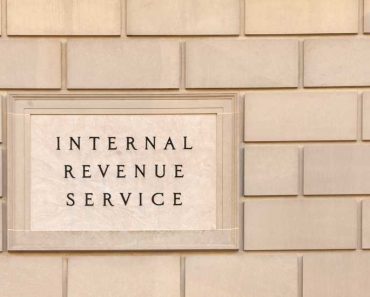[ad_1]
Photo courtesy DepositPhotos.
Concerns about inflation, interest rates, and debt levels have dominated the public discourse as the world recovers from a global pandemic. However, taxes are weighing heavily on the minds of many Americans.
Sixty percent of Americans feel they are paying too much federal income tax, according to a Gallup poll conducted during the 2023 tax season. Not since 2001 have consumers expressed such frustration with taxation.
Adding to the pain is the dwindling size of tax refunds. The Internal Revenue Service (IRS) reported the average refund amount for 2023 was just $2,753 — almost 9 percent lower than the average refund in 2022.
Incorporating tax efficiency within one’s financial plan may provide a solution for those who feel overstretched.
Tax planning is traditionally viewed in the context of how a financial plan should be implemented, per recent Vanguard research on the topic. It demonstrates how a tax return can double as a roadmap to a more prosperous financial future. In doing this, Americans can follow their cash flows and uncover insights into retirement, estate planning, and much more to plan for key financial milestones.
Death and Taxes
As the old adage goes, nothing is certain but death and taxes. Financial planners help with both. Taxes should be a priority topic early on when working with an advisor for the first time.
David Edmisten, CFP and Founder of Next Phase Financial Planning, points out that a client’s tax bracket helps him decide whether taxable or tax-exempt bonds make more sense for his portfolio.
A client’s tax status can also determine whether drawing down cash, using income, or selling securities is optimal for generating extra spending money.
Marguerita Cheng, founder of Blue Ocean Global Wealth, says her team collaborates with clients and their advisors on a range of tactics, from tax-loss harvesting, bunching medical deductions, charitable giving, tax deductions, and credits, to make the right tax savings decisions for that person.
“Even savvy clients find value in having someone to consult with so they can optimize their tax savings,” she says. “I say optimize because it is important to ensure tax diversification for clients so they can have taxable, tax-deferred, and tax-free savings for their accumulation goals.”
Business Owners
Navigating taxes for solopreneurs and business owners can be more complex, ranging from strategies related to employee benefits like a 401(k) plan to corporate tax planning. Typically, taxes are withheld from employees’ paychecks throughout the year, and the balance is settled with the IRS when a worker files the following year.
Business owners, however, generally pay taxes every three months, based on their quarterly earnings. A small business financial advisor can help entrepreneurs navigate tax time with peace of mind.
“Most people, especially business owners, pay more in taxes than they need to, so this is a very important part of what we do as advisors,” says Sean Polley, Private Wealth Manager at Polley Wealth Management. “There is far more opportunity in fully understanding your client’s activities and business so that we can share what opportunities are available to minimize taxes.”
With the U.S. economy still going strong as 2024 nears, small businesses may be riding a wave of bumper revenues that may trigger heftier taxes than they’ve paid in recent years. According to CNBC, certain tax law adjustments from 2022 are reportedly causing unpleasantly large tax bills for small businesses this year.
Jon McCardle, President of Summit Financial Group of Indiana, says more tax-optimizing options are open to business owners, which increases the complexity of their tax profile.
“We advise starting with basics such as a solo 401(k) or SEP IRA while the business is in its infancy,” he says. “Examining expenses would be the next area of focus to ensure appropriate deductions are being taken. After the basics, more complex solutions unfold around employees, office space, and marketing.”
“Taking care of the root of your tree will go a long way to producing fruit on the tree over time,” he says.
Go Long
Maintaining that long-term time horizon is where advisors see the most added value.
“The difference between tax-focused financial planners and CPAs or other tax preparers is that CPAs focus on reducing taxes right now, whereas financial planners concentrate on reducing lifetime taxes,” says Chris Chen, Wealth Strategist at Insight Financial Strategists.
As Vanguard’s research outlines, the four pillars of tax-efficient planning are threshold planning, capital gains optimization, income exclusions, and deductions.
“Many of the tools for tax planning Vanguard refers to are well-known,” says Chen. “(But) implementation can be more difficult than reading the article as it requires actual planning and is assisted with software.”
Tax optimization can be a complicated affair and, depending on individual circumstances, requires expert input. All U.S. taxpayers have the right to pay the least tax possible.
Without understanding the tax code’s ins and outs, consumers risk handing over more money to the government than required, or worse yet, running afoul of the law.
By taking a long-term view of the issue and designing an investment strategy with the help of local financial advisors knowledgeable in federal and state tax obligations, many Americans can lighten their tax burden and set aside more money for their family and futures.
This post was produced by Wealthtender and syndicated by Wealth of Geeks.
[ad_2]
Source link
